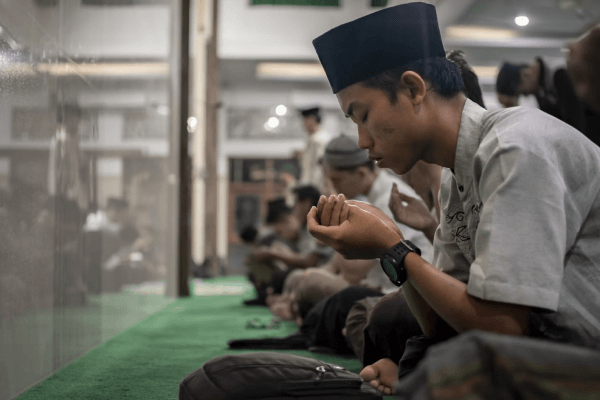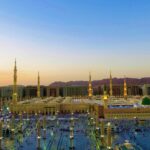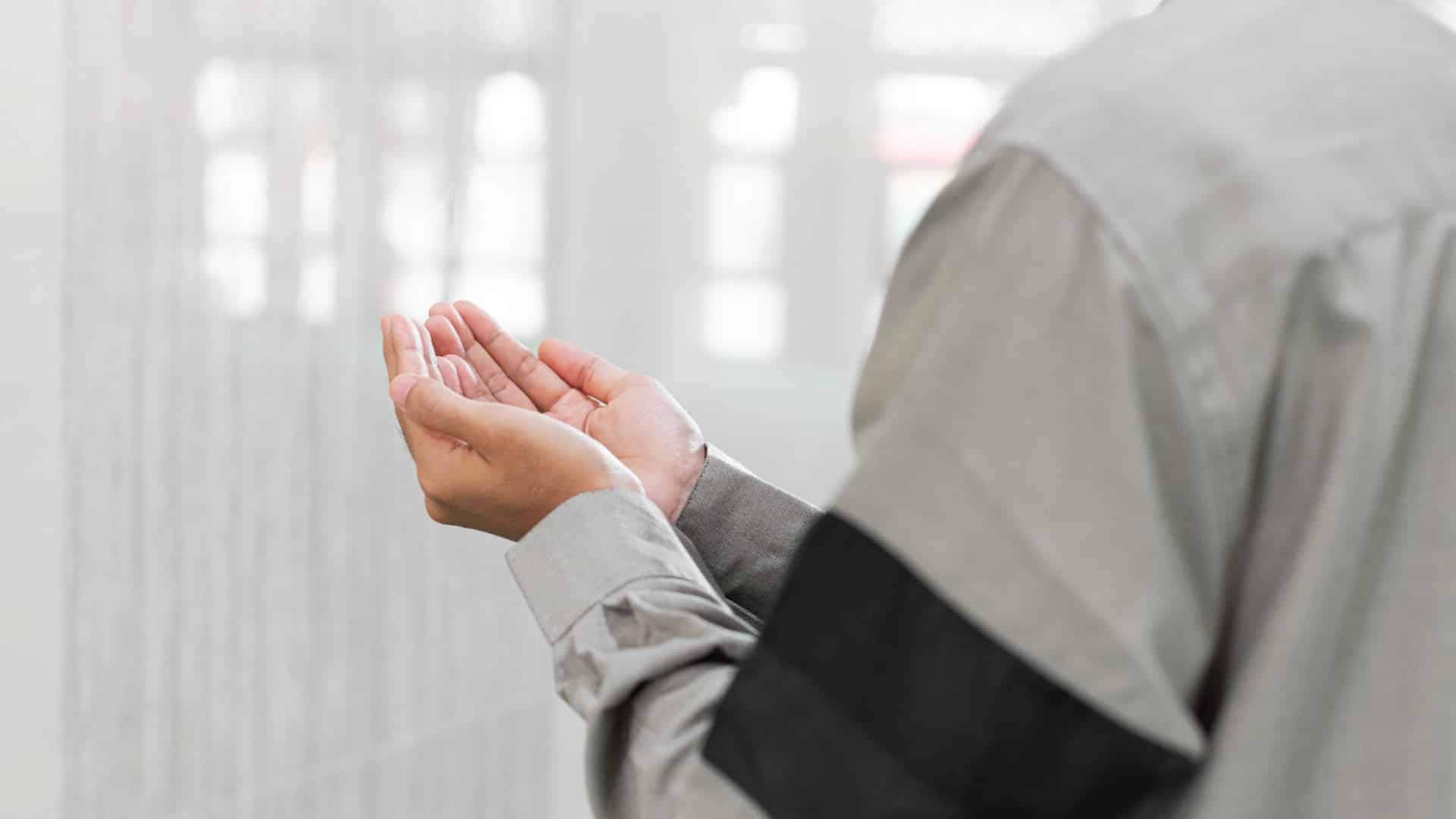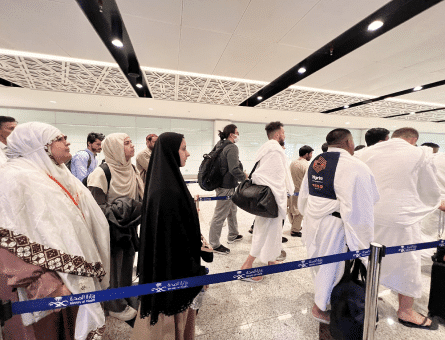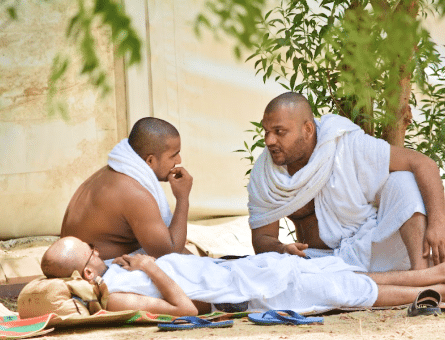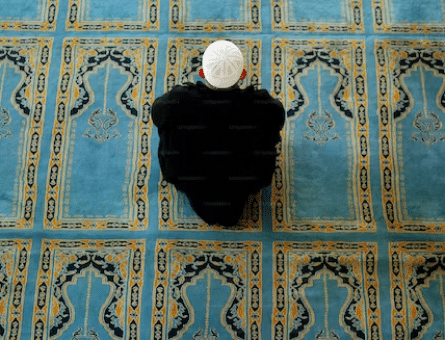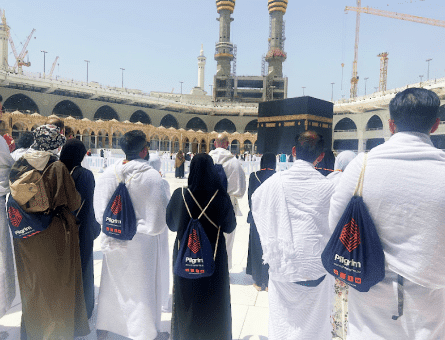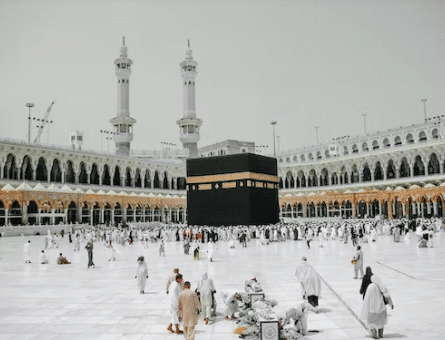Why Should I Start Preparing for Hajj Now?
الحمد لله رب العالمين , والصلاة و السلام على اشرف المرسلين ,
و على اله و اصحابه اجمعين , و بعد
رَبِّ اشْرَحْ لِي صَدْرِي. وَيَسِّرْ لِي أَمْرِي. وَاحْلُلْ عُقْدَةً مِّن لِّسَانِي . يَفْقَهُوا
قَوْلِي
Why Should I Start Preparing for Hajj Now?
As the day’s pass, we progress from youth to maturity, from strengths to weakness’, from impoverished to wealth. As we progress in life, our obligation to perform Hajj awaits. We plan and strive, but in reality how certain is the next day, the next week, the next month, let alone the next year. Are we prepared to return to our maker without fulfilling this ultimate duty? What does The Almighty Creator say?
Allah says in the Quran:
“Verily, the first House of worship appointed for mankind was that at Bakkah (Makkah), full of blessing, and a guidance for the Mankind and Jinn. In it are manifest signs, the Place of Ibrahim; whosoever enters it, he attains security. And Hajj to the Ka’bah is a duty that mankind owes to Allah, those who can afford the expenses…” [Surah Al-Imran]
As we can see from the preceding verse, Hajj is not only the fifth pillar of Islam, but it is an actual duty we owe unto Allah. Is that alone not enough to convince us?
What does the best of mankind say?
Prophet Muhammad صلى الله عليه وعلى آله وسلم said:
“Whoever dies without, having performed Hajj let him die, if he wishes, either a Jew or a Christian.” [Al- Tirmidhi]
Are we willing to chance our hereafter by falling short of what is arbitrary upon us? Allah prescribed Hajj upon us once in a life time for those of us that are capable of undertaking it. This pillar represents the perfect example of worshipping Allah, the ultimate submission, exerting all efforts to obey Him and attaining divine propinquity. The wisdom behind Hajj according to Imam Al-Ghazali; Hajj is the act of worship of a lifetime, the seal of all that is commanded, the perfection of Islam and the completion of religion. We know our ultimate abode will be the hereafter, and we have no further ambition than to attain Paradise. For this reason, the reward for Hajj is the pinnacle of all rewards as attested in the words of the Prophet Muhammad who said:
“The reward for an accepted Hajj is nothing short of Paradise.” [Al-Bukhari and Muslim]
Every year millions of Muslims from around the world pour into Makkah on the lifetime spiritual journey of Hajj, where one meets Allah in the context of matchless diverse and multicultural meetings. It is a great favour Allah has bestowed upon his servants, so we can draw closer to Him and have our sins forgiven and erased. As The Prophet Muhammad صلى الله عليه وعلى آله وسلم indicated:
“He who performs Hajj without speaking or committing indecencies will return as free of sins as he was on the day when his mother gave birth to him.” [Al-Bukhari and Muslim]
Need we ask again, why now?
Don’t deter this obligation any further, as the day’s pass, we progress from maturity to dependency, from health to ailing. As our decline enhances, our prospect of completing Hajj continues to deplete. Let us not be the ones to perish in anguish.
Hajj Is an Obligation, But What Does That Mean? (And What If Someone Doesn’t Go?)
The Hajj to Makkah and its surrounding areas, is one of the essential elements of our Islamic faith. It is obligatory on all believers provided we have the financial capability and physical ability to endure the challenges of the journey. In Makkah lies The Ka’bah, a simple cubed structure bearing great significance. Being the first house of worship established to remind humanity of The One Supreme God. Upon command from Allah it was reconstructed by Prophet Ibrahim and his son Prophet Isma’il.
Allah says in the Quran:
“And when We made the House (at Makkah) a destination for humankind and a sanctuary: Take as your place of worship the place where Ibrahim stood (to pray). And We imposed a duty upon Ibrahim and Isma’il: Purify My house for those who go around and those who meditate therein and those who bow down and prostrate themselves (in worship).” [Surah Al-Baqarah]
The obligation of Hajj falls upon us if we meet certain conditions, these conditions being:
1 To be Muslim
2 To be accountable (by age or maturity)
3 To be sane (it is not obligatory of one who is not sane in mind)
4 To be free (it is not obligatory upon one who is enslaved)
5 To be able (physically and financially, being able to return to our residence with what exceeds our debts)
Delving further into the criterion, no deed from a disbeliever is accepted. Allah says in the Quran:
“And nothing prevents their contributions from being accepted from them except that they disbelieved in Allah and in His Messenger” [Surah Al-Tawbah]
Following on the Prophet Muhammad صلى الله عليه وعلى آله وسلم said:
“The pen is lifted from three [and does not record their deeds]: from one who is sleeping, until he wakes up; from a child until he reaches puberty, and from one who is insane until he comes to his senses.” [Abi Dawood]
Clearly negating the obligation from a child, and one not in a sane state of mind. Now for a slave, they do not have the free will and capacity to be relieved of their duties to perform Hajj, therefore the obligation is also negated. Regarding ones that are impoverished, though not an obligation upon them, Hajj is valid from them. However, the obligation of fulfilling rights of sustenance for those reliant on them, debtors included takes precedence over performing Hajj. For them to go to Hajj can be deemed sinful. In contrast, if one is physically and financially able to do Hajj, then he is obliged to hasten to do Hajj, for them not to perform Hajj can be deemed sinful.
Physical ability can be explored further; wherein if one has a terminal illness but has the financial means, then the obligation is not waived. They must appoint another and fund them to perform Hajj on their behalf. It was reported that a women asked The Prophet Muhammad صلى الله عليه وعلى آله وسلم:
“O Messenger of Allah, Allah’s command to the people to perform Hajj has come when my father is an old man and cannot sit firmly in the saddle. Can I perform Hajj on his behalf?” The Prophet Muhammad replied: “Yes.” [Al-Bukhari]
One may ask is this obligation the same for both genders?
Yes, is the apparent answer, however for our women it is essential for them to have a Mahram. For any travel, near or far, an obligatory pilgrimage or a voluntary one, there must be a Mahram to accompany them. The Prophet Muhammad صلى الله عليه وعلى آله وسلم said:
“No woman should travel except with a Mahram.” [Al-Bukhari and Muslim]
If a woman does not have a mahram, or they have one but he is unable to travel with her, then she is not obliged to perform Hajj. Thus our obligation lies, more often than not we meet the criterion for performing Hajj, so let us hasten to it and fulfil the prayer of Prophet Ibrahim, whose footsteps we follow on this sacred journey.
What Is the Historical Significance of the Hajj Rites?
Hajj linguistically means “to set out for a place”. Islamically however it refers to the annual pilgrimage that we make to Makkah with the intention of performing certain religious rites in accordance with the method prescribed by the Prophet Muhammad صلى الله عليه وعلى آله وسلم. Hajj and its rites were first ordained by Allah in the time of the Prophet Ibrahim, he along with his son Prophet Isma’il being the ones entrusted by Allah to build the Ka’bah – The House of Allah -. Allah reminds us that Prophet Ibrahim and Isma`il raised the foundations of the House with this prayer: “Our Lord! Accept from us: For You are the All-Hearing, the All-knowing. Our Lord! Make of us Muslims, bowing to You, and of our progeny a people Muslim, bowing to You; and show us our place for the celebration of (due) rites; and turn unto us (in mercy); for You are the Oft-Returning, Most Merciful.” [Surah Al-Baqarah]
The building of the Ka`bah, the first house on earth for the worship of Allah, a monument of monotheism, portrays to us that the coming of Prophet Muhammad صلى الله عليه وعلى آله وسلم was a fulfilment of that supplication made by both Prophet Ibrahim and Prophet Isma’il for a Prophet to be sent in that specific location to continue the monotheist creed. After building the Ka’bah, Prophet Ibrahim would come to Makkah to perform Hajj annually, even after his passing, his son continued the practice. Visiting the Sacred House of Allah asserts the bond between us and previous civilisations, encompassing history and traversing the path of Prophets and Messengers as stated in the Quranic verse, Allah says:
“Those were the Prophets who received Allah’s guidance. Follow the guidance they received.” [Surah Al- An`am]
Unfortunately, through the passage of time as history prevails, both the action and objective of the Hajj rites were either forgotten or innovated. As idolatry spread throughout Arabia, the Ka’bah was plagued with impurity with the placement of idols within its sanctity. Internally its walls were lined with poems and paintings, eventually over 360 idols came to be placed around the Ka’bah. During the Hajj period itself, the atmosphere around the sacred precincts became like a circus. The norm became to circle the Ka’bah unclothed, arguing that they should present themselves before Allah in the same condition as at birth. Their prayer became devoid of all sincere remembrance of Allah and was instead reduced to a series of hand clapping, whistling and the blowing of horns. Sacrifices were also made in the name of God. However, the blood of the sacrificed animals was poured onto the walls of the Ka’bah and the flesh was hung from pillars concurrently, in the belief that Allah demanded the flesh and blood of the sacrifice. Singing, drinking, adultery and other acts of immorality was rife amongst the pilgrims. Poetry competitions took centre stage of the Hajj event, where blasphemy and profanity was prevalent.
Thus the people had totally abandoned the teachings of their forefather Prophet Ibrahim. The House that he had made pure for the worship of Allah alone, had been totally desecrated by the pagans and their rites. This sad state of affairs continued for nearly two and a half thousand years. Suitably after this elongated period, the era for the supplication of Prophet Ibrahim reached:
“Our Lord! Send amongst them a Messenger of their own, who shall recite unto them your verses and instruct them in the book and the Wisdom and sanctify them. Verily you are The All-Mighty, The All-Wise.”
Sure enough, Muhammad ibn Abdullah صلى الله عليه وعلى آله وسلم was born within the city where the prayer was first supplicated. Prophet Muhammad صلى الله عليه وعلى آله وسلم spread the message of true monotheism just as his forefather Prophet Ibrahim, establishing the law of Allah upon the land. He culminated in destroying the idols from the sanctity of the Ka’bah which once again returned to its eternal purpose of worshipping Allah.
The Prophet صلى الله عليه وعلى آله وسلم reinstated all the rites of Hajj which were established by Allah’s permission, in the time of Prophet Ibrahim. Specific injunctions in the Quran were revealed in order to eliminate all the false rites which had become rampant in pre-Islamic ignorance. All indecent and shameful acts were strictly banned in Allah’s statement:
“There is to be no lewdness nor wrangles during Hajj.” [Surah Al-Baqarah]
Allah commanded that the slaughtering of the animals should be done seeking the pleasure of Allah, He addressed the deplorable practice of spattering blood and hanging the flesh on the walls of the Ka’bah; saying:
“It is neither their meat nor their blood that reaches Allah, but it is piety from you that reaches Him.” [Surah Al-Hajj]
With continuing revelations, all practices of ignorance were abolished, retracing the pilgrimage to its origins of the ultimate worship of monotheism.
[poll id=”1339″]
Through His Names
New course with
Ustadh Shabbir Hassan




